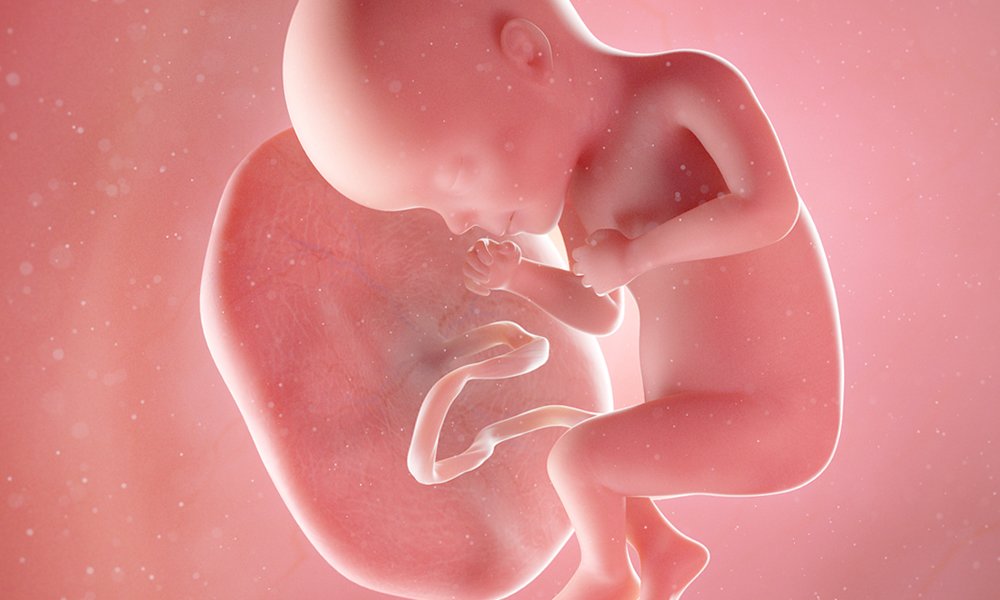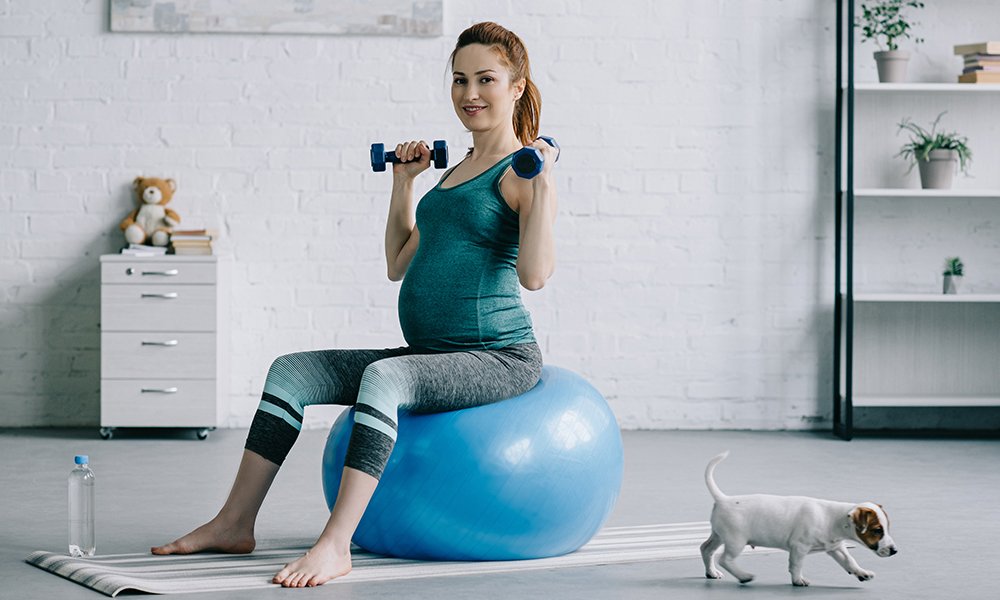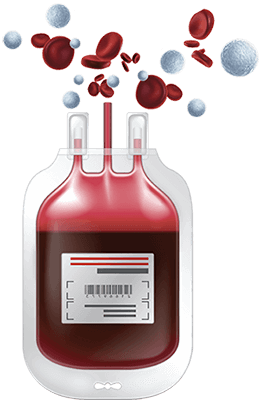Canada's Largest & Oldest Cord Blood Bank
This is the last week of your second trimester. Soon you will be entering your final trimester of pregnancy!
This Week’s Highlights
Your baby looks like the newborn you will soon meet
Your baby may open his or her eyes for the first time
Your partner may be able to feel baby movements
Your Baby at 27 Weeks
Your baby is the size of a cauliflower, measuring about 14 inches (35.6 centimeters) long and weighing in at about 1.7 pound (760 grams).

Baby Development at Week 27
Your little one may open his or her eyes for the first time around now. He or she is also establishing more regular sleep-wake patterns and even dreaming. Your baby’s movements will reflect these sleep-wake patterns. So, if you have a nighttime kicker, be aware, some parents swear that the same pattern will continue after birth.
In other news, your baby is now able to recognize your voice. You may notice that he or she will calm down or their activity levels change when you sing or speak. Your baby will continue to grow for the rest of your pregnancy, and his or her organs will continue to mature in preparation for birth.

Pregancy Tip
Your partner may be able to hear your baby’s heart beat by placing their ear on your belly this week.

Your Bump at 27 Weeks
Your belly probably is close to the size of a basketball this week. You should have gained about 15 to 30 pounds (6.8 to 13.6 kilograms) by this point. Your healthcare provider will ask you to watch your weight gain in case you have gained a tad more.
How Far Along are You?
27 weeks in, 13 weeks to go! You are two-thirds of the way through your pregnancy. Even though pregnancy is measured in weeks this means you are now entering your seventh month of pregnancy.
How Your Body is Changing
Your body is going through massive changes right now, and your may notice some old symptoms of pregnancy resurfacing.
Your growing belly may be the cause of round ligament pain and back pain. All the growing and stretching may give your stretch marks and dry skin. Pregnancy hormones may induce skin pigmentation changes and changes in the size of your feet.
The limited amount of space in your abdominal cavity may result in indigestion and heartburn. Pressure from the uterus may lead to ‘snissing’ (peeing when sneezing). Altered circulation may bring about leg cramps, dizzy spells and bleeding of your gums.
Just remember that all of these changes are necessary to grow that bundle of joy inside you. You will be able to meet him or her in a few short months.
At this point, you may also start feeling a bit of stress and even anxiety about all the changes that will be happening in your life. If you have a history of anxiety or depression, or notice that your anxiety levels are higher than usual, talk to your healthcare provider.
Exercise, visits with friends, rest, and sleep can help with anxiety. Remember, you are not alone in this journey; it is ok to reach out for support.
What is the Difference Between Private Cord Blood Banking & Public Cord Blood Banking?
Donating cord blood is the same as donating blood. You cannot ask for your baby’s cord blood back when you need it. Also, only a small number of donated cord blood units donated actually become banked and the majority become discarded.
Banking your baby’s valuable cord blood stem cells for private usage by your family guarantees that your child owns his/her cord blood stem cells. This ensures that these valuable cells are readily available over the lifetime of your child for usage by your child or family members whenever it is required.
Exercise at 27 Weeks
If strength training is part of your exercise routine, make sure you are adjusting your exercises.
- Remember you need to avoid certain positions and exercises that require forceful pushing while holding your breath. This can increase your blood pressure.
- Sit while lifting. Standing while weightlifting can make you feel lightheaded. It may also increase your risk of developing varicose veins.
- Remember not to hold your breath and to tighten your pelvic floor muscles before you lift.

Pregnancy Symptoms at Week 27
Leg cramps – Leg cramps can be frequent in the second and third trimesters of pregnancy and can be more frequent at night interrupting your much-needed rest. While the causes behind leg cramps are not completely understood, there are several remedies you can take to reduce their frequency and duration. Staying hydrated, stretching, resting your feet when possible, and including more calcium and magnesium in your diet can be helpful.
Hemorrhoids – Did you know that the increase in your blood volume is also behind your haemorrhoids? They are caused by dilated blood vessels in your rectal area, as the blood volume and flow is increased. In your second and third trimesters, pressure from the uterus on your rectum may give you hemrroids. You can adopt preventative strategies such as, including more fibre in your diet and drinking more water to avoid haemorrhoids. Warm baths can help sooth existing haemorrhoids.
Dry, itchy belly – As your belly and breasts grow, the stretching skin can often cause itchiness. Staying hydrated and applying moisturizer can help minimize the dryness and the itchiness.
Restless leg syndrome – This is a pregnancy symptom experienced by approximately 15% of moms to be that may keep you up all night. Restless leg syndrome is characterized by uncomfortable tingling or creeping and crawling felt in your feet and legs that makes you want to move them. Genetics, hormonal changes and even certain types of foods may be behind why you experience restless leg syndrome. If you experience an episode while you are trying to get to sleep, you may want to try walking around for a bit since movement can help relieve symptoms. Acupuncture and a hot pad can also be useful. You may want to keeping track of your food intake to see if certain foods are responsible for triggering an episode.
Crash course: Cord blood banking in 11 minutes.
Cord Blood Banking is Easier than You Think



